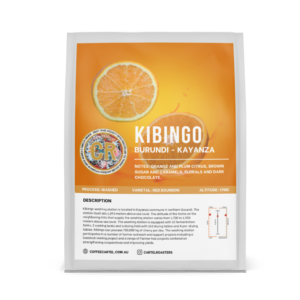About this coffee
We are proud to once again offer an amazing coffee from longmiles coffee burundi …We Welcome back Longmiles coffee project from Burundi, we have been purchasing this coffee every year since 2014 and this washing station can be likened to a great off-road adventure. Heza is built into the side of a cliff facing the Kibira rainforest, which looms just 2.4 miles in the distance. To say Heza washing station is ‘remote’ would be an understatement and yet the farming communities that live in the surrounding hills are special ones. Named by the Carlsons, Heza means ‘beauti- ful place’ in Kirundi, the local language of Burundi. This is a coffee is sundried-natural and the team behind this coffee ensure every year that the coffee continues to get better and better through continuous better farming and sustainability practices and learning lessons from previous years. We love this coffee and know you will love this as a Filter or Espresso.
HISTORY OD BURUNDI
Coffee production has been something of a roller coaster in Burundi, with wild ups and downs: During the country’s time as a Belgian colony, coffee was a cash crop, with exports mainly going back to Europe or to feed the demand for coffee by Europeans in other colonies. Under Belgian rule, Burundian farmers were forced to grow a certain number of coffee trees each—of course receiving very little money or recognition for the work. Once the country gained its independence in the 1960s, the coffee sector (among others) was privatized, stripping control from the government except when necessary for research or price stabilization and intervention. Coffee farming had left a bad taste, however, and fell out of favor; quality declined, and coffee plants were torn up or abandoned.
After the civil war–torn 1990s and the nearly total devastation of the country’s economy, coffee slowly emerged as a possible means to recover the agrarian sector and increase foreign exchange. In the first decade of the 2000s, inspired in large part by neighboring Rwanda’s success rebuilding through coffee, Burundi’s coffee industry saw an increase in investment, and a somewhat healthy balance of both privately and state-run coffee companies and facilities has created more opportunity and stability, and has helped Burundi establish itself as an emerging African coffee-growing country, despite its small size and tumultuous history.
Like Rwanda and, to a lesser extent, Democratic Republic of Congo, Burundi battles the infamous “potato defect,” a microorganism that contributes a raw-potato-like flavor and aroma to infected beans, and which can’t be detected by sight in parchment, green, or roasted coffee. Research efforts to eradicate the defect completely have shown promise, and we look forward to the day when the potato is a distant memory.


